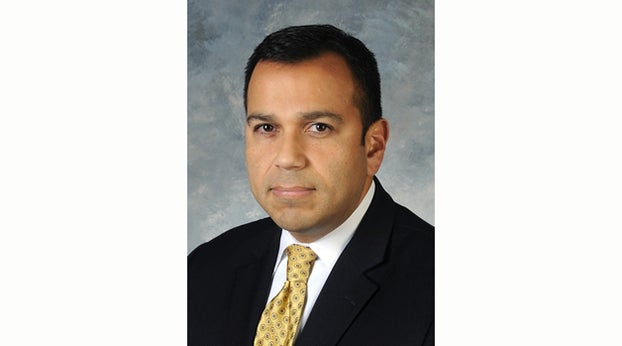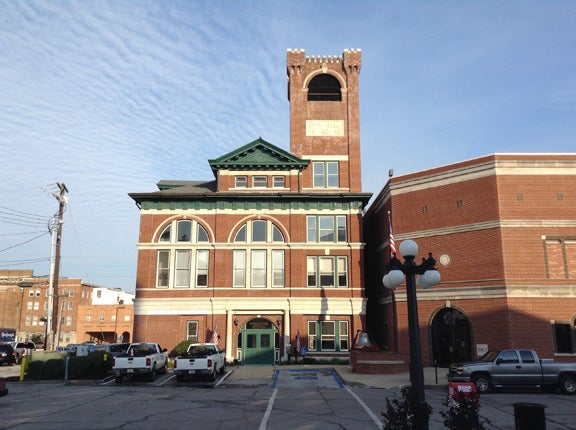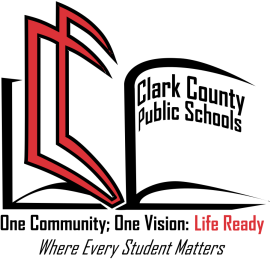Politicization of public health issues never more evident than today
Published 6:00 pm Thursday, August 26, 2021

- Sen. Ralph Alvarado
|
Getting your Trinity Audio player ready...
|
By Sen. Ralph Alvarado
Kentucky General Assembly
In medicine, doctors, by the nature of their training and experience, want nothing more than to get to the root of a problem. It can be frustrating for medical professionals to watch how the world of politics can hinder public health. That is certainly true for me, someone uniquely familiar with health care and medicine, and as a State Senator for our 28th District.
The problem of politicization of public health issues, and even counterproductive measures by officials, has never been more evident than it has for this past year and a half. In hindsight, the spawn of the COVID-19 pandemic could not have come at a worse moment than just before the 2020 presidential election. Politics immediately began to drive people apart due to the heightened politicization of our nation.
Through the past excruciating 17 months, medical professionals on the frontlines have been steadfast in addressing a public health crisis. They have encouraged and promoted the safety and efficacy of vaccinations. They have personally treated those who become ill. It is not politics for them. However, government bureaucrats, officials, and talking heads have made matters more challenging in their consistently inconsistent guidance and contradictory information, poor messaging, arbitrary edicts, and narratives that have caused many in public to view COVID-19 politically instead of the health issue that it is. It is essential to understand that when any public official undermines the confidence of life-saving vaccines just because of the administration they arise under, that is equally as wrong as undermining them in the face of data showing they can save lives. Even in recent days, there have been unwarranted attacks on people trying to promote life-saving COVID-19 treatment.
I hope that public officials will recognize when their messaging has reached the point of ineffectiveness. Kentuckians and Americans do not need to be lectured. They need to be a part of the conversation, and their concerns need to be heard, much like they would be in conversation with their doctor, who would guide and recommend the course of action for a patient. That is what lawmakers—inundated with constituent’s cries for help on unemployment and a host of other issues—have tried to do throughout this pandemic.
From the onset, we should have been able to come together, even if in disagreement. Here in Kentucky, the Executive Branch has undermined the Legislative Branch. The legislature is being sued when not being outright ignored and even made the punchline of bad jokes. The goal, of course, is a hope that a judge will legislate from the bench rather than honoring the constitutional authority of the Kentucky General Assembly—the governing body solely entrusted with the lawmaking power.
Lawmakers in Frankfort understand that when actions are taken on issues, the decisions can have far-reaching impacts and will be received differently among many people. It is necessary to consider multiple perspectives and ideally lean on the Republic form of government we have to make decisions. A recent example—mandatory masking in schools—has brought that need to light, though it is not the first time since COVID-19 came into our lives.
Weeks before the return of students to the classroom, Governor Beshear made a wise decision by indicating that he would be leaving mask mandate decisions to local districts. This is something the legislature could applaud, as local control is best. On that news from the Governor, school district leaders began communicating with local health departments, hearing parents’ and teachers’ thoughts, and determining the best course of action for their unique school district. Then, mere days before students would step into the classroom, a unilateral mandate caught everyone off guard that mandated masks statewide, much to the chagrin of many who worked hard to enact a local plan. This was reminiscent of last year when districts were given the go-ahead to make local COVID-19 mitigation plans and allow students to return to in-person learning. Just before communities could get their students back into the classroom, a statewide mandate came down from Governor Beshear, disrupting those well-crafted plans and forcing students into almost an entire year of virtual learning.
I was recently appointed as a member of the Administrative Regulations Review Subcommittee (AARS). At my first meeting as a member, we had a robust discussion on student masking policy. As you may know, due to the passage of House Bill 1, House Joint Resolution 77, Senate Bill 1, and Senate Bill 2, the legal authority of the Governor to issue continued unilateral edicts is in question. Currently, it awaits a ruling from the Supreme Court of Kentucky. Knowing this, the Governor walked back his executive mask mandate and turned to the Kentucky Department of Education (KDE) to issue it on his behalf. KDE filed an emergency regulation mandating masks in public schools, which could, if not withdrawn, extend 270 days—ll without a single vote from an elected official. That regulation was specific to our discussion during the ARRS meeting.
I would highly encourage you to visit ket.org/legislature/archives to find footage from our meeting. Parents from all over Kentucky joined in expressing their concerns and desire to make their personal decisions. Others called for allowing local school district leaders to be given the ability to do what they think is best for their kids. Almost the entire room during the meeting was troubled by some comments from the commissioner of Education. I asked him, “Do you think that you love our kids more than we love our kids. Do you think we want what is best for them?” He insisted that he loved kids equally to how much parents love their kids. I am sorry, but that is absurd and quite frankly insulting.
Let me be very clear. Vaccines are safe and effective. Please, for the sake of our commonwealth and your protection, get vaccinated. While they are not 100 percent certain—and few things ever are besides death and taxes—to protect from transmission of COVID-19, they decrease the likelihood substantially, and maybe most importantly, they severely limit symptoms if COVID-19 is contracted. Furthermore, I will not dispute that masks reduce the transmission of viral infection when adequately worn and in unison with other mitigation measures like sanitization of surfaces and social distancing. They can catch droplets from the nose and mouth that come out while talking, breathing, and sneezing or coughing, one of the three ways COVID-19 can be transmitted. When masks are required, I will insist those responsible for enforcing the rules make sure they are worn appropriately and that handwashing and other sanitation efforts are given equal attention.
Furthermore, I have been a pediatrician for almost the entirety of my adult life. When I see an emergency regulation handed down by the Department for Public Health that requires a child care provider to keep a mask on a two-year-old child, I have sincere concerns. During the committee meeting, I pointed out that it is almost easier to potty-train a child at that age than to keep a mask on their face. The problems of enforcing the masking of small children are well known. The World Health Organization advises against masking in children under the age of 5 and caution in children ages 6 to 11.
Unfortunately, the feedback provided to the unelected KDE, Governor-appointed Board of Education, and the commissioner were not warmly received. The committee asked if they wished to withdraw their emergency regulation, to which they said no. The committee then overwhelmingly voted to find it deficient, a formal expression of the legislature’s disapproval. The Governor decided to keep the KDE regulation in place, which is his authority under current state statute. Nevertheless, the legislature will have the power come January 2022 during the regular session of the General Assembly to enact legislation to end the statewide regulation that has taken proper jurisdiction out of the hands of our local education officials.
In closing, I want to leave you with this. Right now, hospital bed space and ICU beds are stretched thin. Some want to blame COVID-19 for this problem, but the genuine reasons are more profound than that. The new viral wave is “the straw that has broken the camel’s back.” Kentucky has had difficulty in attracting and retaining medical staff for some time. Currently, there are hospital beds physically available, but there are not enough nurses available to staff all of them. I have sounded the alarm on this issue for a decade on the insurance bureaucracy, government regulations, and unprotected legal liability that has driven Kentucky’s medical professionals out of our hospitals and into positions with national staffing agencies that ultimately increase costs for our state hospitals. I will be talking about this more in the days ahead and pray that the new wave of COVID-19 peaks soon so that our doctors and nurses can have the capacity to provide care for all in need. Again, in the meantime, we can all help the situation by getting vaccinated. As a medical professional, I implore you to do so.
Senator Ralph Alvarado (R-Winchester) represents Kentucky’s 28th Senate District, including Clark and Montgomery Counties and the eastern portion of Fayette County. He serves as co-chairman of the Interim Joint Committee on Health, Welfare, and Family Services, and is a member of the Interim Joint Committees on Banking and Insurance; Local Government, and State Government. He also serves as a liaison member of the Budget Review Subcommittee on Human Resources. Additionally, he serves as a member of the Medicaid Oversight and Advisory Statutory Committee, the Severe Mental Illness Task Force, the Unemployment Insurance Reform Task Force, and the Administrative Regulation Review Subcommittee.





